Stormwater Management
City of Aiken Stormwater Illicit Discharges
Report Illicit Discharge
It is imperative that illicit discharges be detected, reported, and corrected as early as possible to minimize harm to the environment. If you see or suspect illegal dumping or illicit discharges into the City’s drainage system, please click the Report Now button. We will promptly investigate the matter to determine if an Illicit discharge is occurring and facilitate corrective action if warranted.
Sediment from construction activities, Fats Oils Grease (FOG), and SSOs are among the greatest offenders as well as poop from animals getting into the storm drain system.
Enforcement Response Plan:
City of Aiken Illicit Discharge Ordinance
Illicit Discharge Detection-Elimination ERP
Fats, Oils, and Grease (FOG)
See Fats, Oils, and Grease (FOG)
Pesticides, Herbicides, Fertilizers (PHFs)
See Stormwater Best Management Practices – Landscaping, Gardening & Pest Control
Sediment from Construction Activities
When land is disturbed at construction sites, the erosion rate accelerates dramatically. Sediment leaving these sites can have negative impacts on the water quality of our local waterbodies. Depending on your line of work as a contractor/subcontractor, you may be responsible for the installation, maintenance, or utilization of sediment and erosion control devices and proper illicit discharge prevention techniques or best management practices (BMPs). BMPs typically seen on a construction site to reduce sediment migration include but are not limited to construction entrance(s), silt fence along the perimeter, inlet protection, stabilization of non-active areas, and concrete washout stations.
As a resident, we encourage you to reach out to our Stormwater Administrator or Engineering and Utilities staff any time you witness or come across a potential illicit discharge. Working together, we can aim to eliminate them completely.
For more information, see our Construction Enforcement Response Plan Flowchart.
Important Tips for Illicit Discharge Prevention
- Properly utilize and maintain BMPs.
- Notify the Stormwater Administrator at least 24 hours prior to dewatering activities to ensure a proper setup.
- Temporary stockpiles and construction materials must be properly contained and stored.
- Ensure proper placement of portable toilets. Do not place portable toilets directly upstream of a stormwater conveyance structure.
- Pay attention to the amount of paint, tile, etc., washout accumulating on site, ensuring that wash water does not leave the site or enter the stormwater system.
- If a spill does occur, do not use water to hose down the area. Either use a spill kit or clean material to help absorb the spill. Clean up any spills immediately and dispose of materials in accordance with applicable state and local laws.
Trash and Debris
Yard waste and clippings as well as other debris that is piled or collected in, around, or on the storm drains are not prohibited. The material collected inhibits flow to the proper channels which could lead to flooding in extreme events. The trash could also contain pollutants that do not get treated before draining into our waterways. Please be mindful to keep our storm drains clear of any and all debris.
Illicit Connections
An illicit connection is any unauthorized pipe, ditch, or other manmade structure that is physically connected to a property or drainage system. These are often found during construction. Examples might include:
- Sanitary wastewater pipe that is directly connected from a home or business to the storm drain system
- A shop floor drain that is connected to the storm drain system
Typical pollutants found in flows coming from illicit connections include: raw sewage, heavy metals, oil and grease, solids, detergents, chlorine, potassium, ammonia, and nutrients. Raw sewage typically includes fecal bacteria, which may cause public health concerns.
Discharges from illicit connections occur during wet weather and dry weather. During dry weather, the pollution effects of local waters can be severe because the discharge is not diluted in the storm sewers before it reaches the water body.
What Do I Look For?
- Unidentified piping materials connected to the storm sewer system such as PVC piping
- Pipes leading into the storm sewer system from private homes and businesses
- Abnormal flow during dry weather periods
- Odors coming from the storm sewer system
- Any of the following in the storm sewer system: discolored water, floatables, suds, oil, staining, and residues
When in doubt….
| Material | Proper Disposal Method |
| Lawn clippings | Collect and recycle |
| Yard Waste | City Yard Waste Collection |
| Trash, litter, and debris | Throw refuse in trash cans |
| Pet Waste | Pick up after your pets |
| Soil and sediment | Sweep up and collect |
| Pool discharges | Dechlorinate before discharging to storm sewer |
| Dumping toxic chemicals | Route piping to sanitary sewer system |
| Vehicle fluids | Take to an auto parts store or Household Chemical Collection Event |
